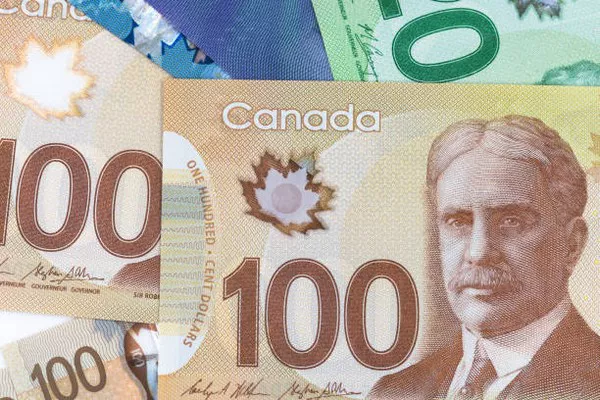For travelers, businesses, or individuals engaging in international transactions, understanding currency exchange fees is crucial when converting Canadian Dollars (CAD) into other currencies. Banks play a significant role in facilitating currency exchange services, but they often impose fees and charges for these transactions. This article delves into the world of currency exchange fees in Canada, exploring the factors that influence them, common fee structures, ways to minimize costs, and frequently asked questions regarding currency exchange fees.
Factors Influencing Currency Exchange Fees
Several factors influence the currency exchange fees charged by banks in Canada. Understanding these factors can help individuals make informed decisions when exchanging currency:
1. Exchange Rate Markups
Banks typically apply a markup to the exchange rate when converting currency, known as the spread. The spread represents the difference between the wholesale exchange rate (the rate at which banks buy and sell currency between themselves) and the retail exchange rate (the rate offered to customers). The wider the spread, the higher the currency exchange fees.
2. Transaction Amount
The amount of currency being exchanged can impact the exchange fees charged by banks. Some banks may offer preferential exchange rates or lower fees for larger transactions, while smaller transactions may incur higher fees.
3. Service Fees and Commissions
In addition to exchange rate markups, banks may charge service fees or commissions for currency exchange services. These fees can vary depending on the bank and the type of transaction (e.g., cash exchange, wire transfer).
4. Currency Pair
The currency pair being exchanged can also influence the exchange fees charged by banks. Major currency pairs such as USD/CAD or EUR/CAD may have lower fees compared to exotic currency pairs due to their higher liquidity and trading volume.
Common Fee Structures for Currency Exchange
Banks in Canada typically employ various fee structures for currency exchange services. Understanding these fee structures can help individuals assess the cost-effectiveness of exchanging currency:
1. Fixed Fee
Some banks charge a flat fee for currency exchange transactions, regardless of the transaction amount. This fixed fee may apply to both cash exchange and electronic transfers.
2. Percentage Fee
Other banks may impose a percentage-based fee on the transaction amount. This fee is calculated as a percentage of the total currency exchanged and may vary depending on the currency pair and transaction size.
3. Combination of Fixed and Percentage Fees
Some banks combine fixed and percentage fees for currency exchange transactions. For example, a bank may charge a fixed fee for transactions below a certain threshold and apply a percentage fee for larger transactions.
4. Hidden Fees
In addition to upfront fees, banks may also incorporate hidden fees into the exchange rate markup. These hidden fees are not explicitly disclosed to customers but are reflected in the difference between the wholesale and retail exchange rates.
Strategies to Minimize Currency Exchange Fees
While currency exchange fees are an unavoidable aspect of converting currency, there are several strategies individuals can employ to minimize these fees:
1. Compare Exchange Rates and Fees
Before exchanging currency, compare exchange rates and fees across different banks and currency exchange providers. Look for institutions that offer competitive rates and transparent fee structures.
2. Negotiate Fees for Large Transactions
For larger currency exchange transactions, consider negotiating fees with your bank or currency exchange provider. Some institutions may be willing to waive or reduce fees for high-volume transactions.
3. Use Currency Exchange Services
Consider using specialized currency exchange services or online platforms that offer competitive exchange rates and lower fees compared to traditional banks. These services may provide additional features such as rate alerts and convenient payment options.
4. Plan Ahead
Avoid exchanging currency at the last minute or in high-traffic tourist areas, as banks and currency exchange providers may charge higher fees in these situations. Plan ahead and exchange currency when exchange rates are favorable.
FAQs on Currency Exchange Fees in Canada
Below are some frequently asked questions regarding currency exchange fees in Canada:
1: How much do banks typically charge for currency exchange in Canada?
Banks in Canada may charge a combination of fixed fees, percentage fees, and exchange rate markups for currency exchange services. The total fees can vary depending on factors such as the transaction amount, currency pair, and service provider.
2: Are there any hidden fees associated with currency exchange in Canada?
Some banks may incorporate hidden fees into the exchange rate markup, which are not explicitly disclosed to customers. It’s essential to inquire about all potential fees and charges before completing a currency exchange transaction.
3: Can I negotiate currency exchange fees with my bank?
For larger currency exchange transactions, it may be possible to negotiate fees with your bank or currency exchange provider. Consider discussing your requirements with a bank representative to explore potential fee waivers or discounts.
4: Are there alternative options for currency exchange in Canada besides banks?
Yes, there are alternative options for currency exchange in Canada, including currency exchange services, online platforms, and specialized currency exchange providers. These alternatives may offer competitive rates and lower fees compared to traditional banks.
5: How can I avoid paying excessive currency exchange fees?
To avoid paying excessive currency exchange fees, compare exchange rates and fees across different providers, plan ahead for currency exchange transactions, and consider using specialized currency exchange services or online platforms that offer competitive rates and transparent fee structures.
In conclusion, understanding currency exchange fees in Canada is essential for individuals seeking to convert Canadian Dollars into other currencies. By considering factors such as exchange rate markups, transaction fees, and hidden costs, individuals can make informed decisions and minimize expenses when exchanging currency.


